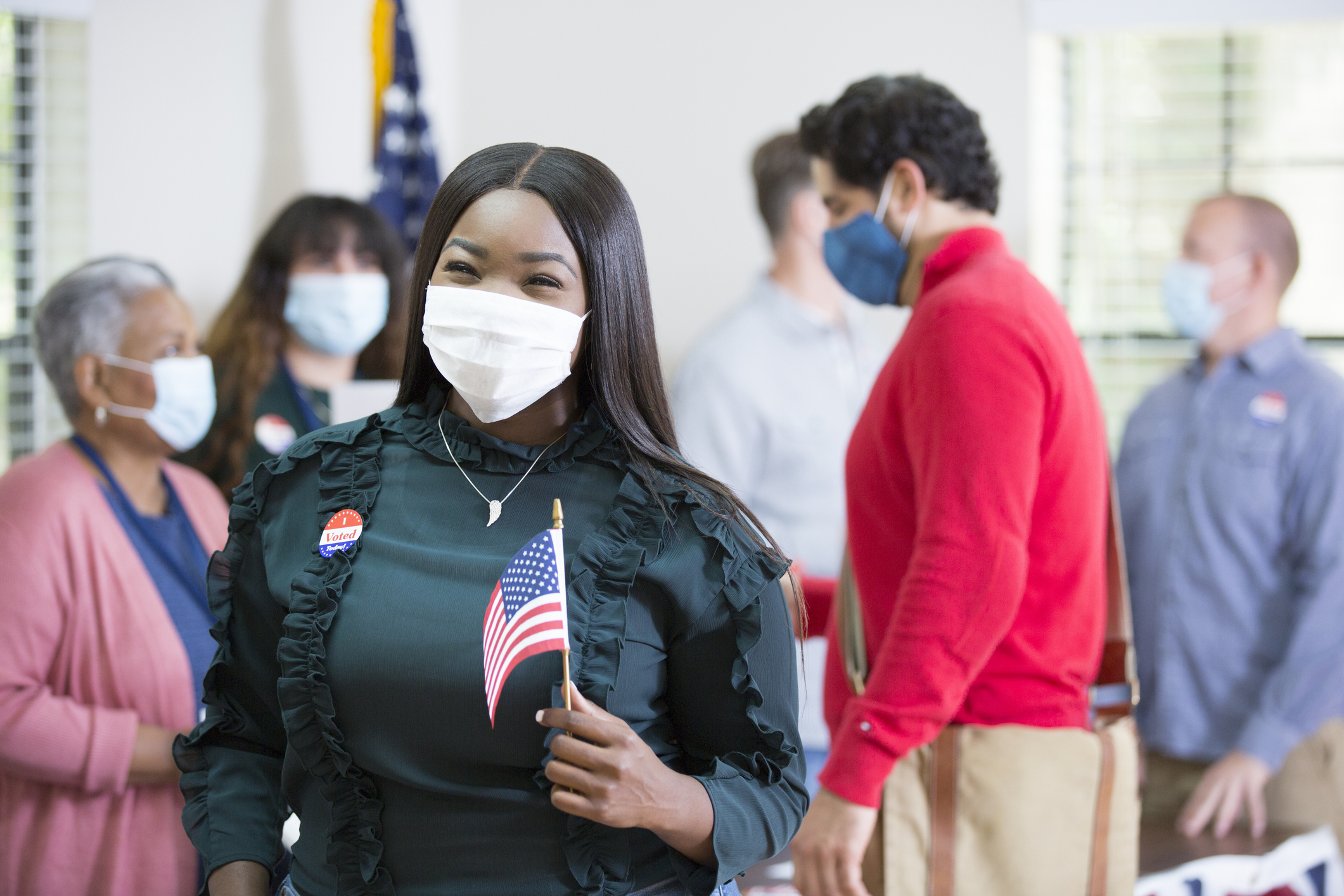We’ve all heard that voting is important. But something we don’t hear as much about is the crucial role of election workers—a.k.a. poll workers—and how essential they are to the voting process. According to the nonprofit Work Elections, “Next to casting a ballot yourself, serving as a poll worker is the most important thing you can do to help our democracy thrive.”
This year the coronavirus pandemic has created a poll worker shortage. You see, most poll workers are senior citizens. In fact, more than two-thirds of poll workers in the 2018 general election were 61 or older.

That means many seasoned poll workers are opting out this year since they’re in the age group that’s most at risk of getting seriously ill or dying because of the coronavirus. But this isn’t just a problem this year, the reality is that without poll workers, polling places close, and that means leaving many people without a place to cast their vote on election day.

We need a new generation of poll workers. Young people, we’re talking to you—and not just this year, but every year. Many states allow high school students as young as 16 or 17 to serve as poll workers: check the rules in your state here. You’ll get important, firsthand experience about how democracy works, make a real contribution to your community, and maybe even get paid. While the pandemic especially threatens veteran poll workers, you are the leaders of tomorrow and it’s time for all of us to step up to strengthen our democracy.
It’s About More Than Age
Although more people will vote by mail this year, we still need poll workers to assist those who choose to vote in person and those who rely on in-person voting as their only option. Even as mail-in and absentee voting become more accessible in states across the country, there are still millions of Americans—including people with disabilities and people who don’t have access to reliable mail service—who rely on in-person voting for every election, with or without a pandemic.
If a polling location isn’t adequately staffed, it faces the possibility of closure.
Why does this matter? Imagine this:
You don’t own a car. Your assigned polling location is a 30-minute walk away. You plan on walking there to vote on election day before your work shift…until you find out that your polling location closed and that your new location is now a 1.5-hour walk away. You probably won’t be making that three hour round trip before your shift.
When a polling location closes, many people end up not voting because they just don’t have the resources to get to their new polling location or they don’t have adequate time off work or away from other responsibilities to travel to a more distant voting location.

Poll closures foster disenfranchisement, limiting access to vote—especially for those without access to transportation or who rely heavily on mass transit. Take Texas as an example of this:
Since 2012, more than 750 polling locations have closed throughout the state. In Waco Texas alone, more than 44% of the city’s polling places closed between 2012 and 2018, despite the fact that the city’s population increased by more than 15,000 people, two-thirds of whom were Black and Latinx residents. Political experts say the closures are a form of voter suppression that exacerbates Texas’ already low voter turnout rates.
When polling locations close, wait times at the locations that are open lengthen. And with coronavirus safety measures requiring people to stand six feet apart, you can only imagine how long those lines will get during the 2020 election.
If you’re wondering how many poll workers we need for the 2020 election, MIT worked together with Democracy Works to find out:
National Workers Needed | 1,168,633 |
National Shortage With Allowance for Closures | 281,639 |
National Shortage With No Closures | 467,453.40 |
But let’s talk more about what a poll worker is and how they help democracy thrive.
What Is a Poll Worker and What Does a Poll Worker Do?
Most poll workers are everyday people like you and me. They typically aren’t full-time election workers, and they usually aren’t employees of election offices. Many states pay poll workers, while others make it a volunteer position. Poll workers typically work on the dates of primary and general elections. They also work on days when in-person early voting is available.
Being a poll worker is an important job. Poll workers are trained to safeguard the election process by helping to:
- Verify the identity of voters and voter registrations
- Assist voters with signing the register, affidavits, or other documents required to vote
- Issue ballots and set up voting equipment
- Ensure voters understand the voting process by demonstrating how to use voting equipment and explaining procedures
- Serve as a resource for voters who encounter problems, from registration issues to voter identification questions and translating language barriers
- Report results
All election workers receive poll worker training from election officials. They learn the mechanics of the voting process; they also learn the rules and regulations to protect that process.
Although being a poll worker is a tough job, it’s crucial to our livelihood as citizens. Poll workers see voters through the voting process and help them solve any problems that may take place along the way—whether it’s helping a voter manage voting equipment/machines or helping to translate for a voter with a language barrier.If you really think about it, poll workers are kind of like heroes; they protect votes. And voting matters—because the votes cast in your community help decide the laws, policies, rules, and regulations that directly affect the day-to-day lives of you, your family, and your neighbors. So, even if you’re not yet old enough to vote, think about signing up to help your community on Election Day.
If you’re ready to be a voting hero, click here to find out what you need to know.
TAGS:







